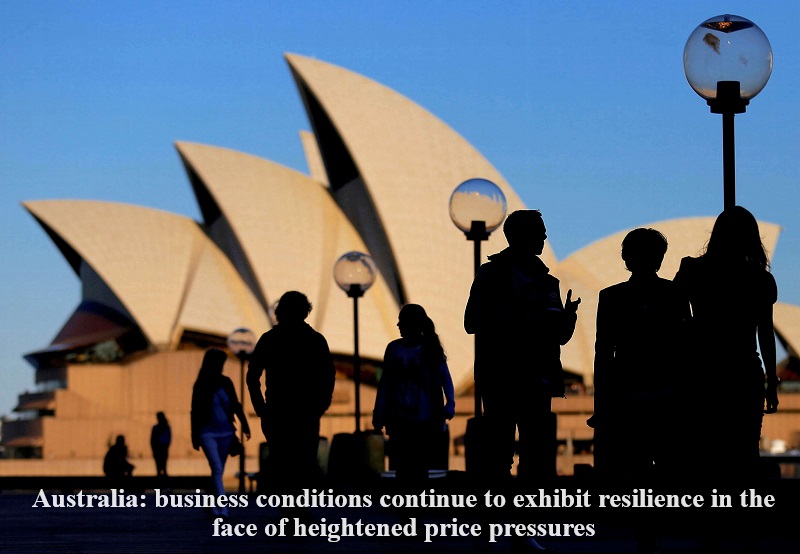
Recent data from Australia has revealed a noticeable contrast in sentiment between the business sector and households. A report by Bloomberg highlights that while business conditions continue to display resilience in the face of mounting price pressures, consumer confidence remains mired in a “deeply pessimistic” state. This divergence underscores the varying responses of firms and households to the tightening monetary policies.
A survey conducted by National Australia Bank Ltd. and released on Tuesday shows that business conditions, which assess sales, employment, and profitability, saw a marginal decline of 3 points to 11 in September. However, they remained above the average levels seen since the beginning of the year. Business confidence remained steady at 1 point.
Alan Oster, the Chief Economist at NAB, commented, “The economy has remained in reasonable shape through the middle of the year. The survey showed some positive signs for inflation, with cost pressures and price growth easing.”
In contrast, a separate household survey by Westpac Banking Corp., conducted from October 2 to 5, reported a 2.9 percent increase in consumer sentiment in October, reaching 82 points. Nonetheless, pessimists substantially outnumbered optimists, highlighting a prevailing sense of pessimism among consumers. This index has largely fluctuated within a range of 78-86 over the past year.
These surveys underscore the ongoing disconnect between Australia’s heavily-indebted households and its corporate sector, suggesting that businesses are better equipped to navigate the impact of higher interest rates. NAB’s survey also revealed positive indicators such as forward orders remaining in positive territory.
The Reserve Bank of Australia (RBA) has been closely monitoring the situation after implementing four percentage points of rate hikes since May of the previous year, aiming to curb inflation. While consumer prices have begun to ease, a tight labor market and rising wage growth indicate that policymakers are prepared to take further action if necessary.
Matthew Hassan, a Senior Economist at Westpac, commented on consumer sentiment, stating, “The consumer mood has improved slightly, but optimism remains in extremely short supply.” He noted that while there are faint signals of hope regarding family finances and job prospects, these positive aspects are overshadowed by concerns about high inflation and renewed fears of interest rate hikes.
Notably, the sub-index measuring the outlook for household spending, known as “the time to buy a major household item,” surged by 7.6 percent. If this increase is sustained, it could be indicative of easing inflation pressures for consumers.
The RBA’s next meeting is scheduled for November 7, and during that week, it will release detailed forecasts. Economists hold differing opinions on whether the central bank will implement one final rate hike, potentially raising rates to 4.35 percent.

Post Your Comments